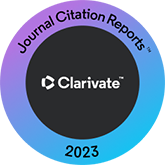Islam as the inborn religion of mankind: the concept of fiṭra in the works of Ibn Ḥazm
DOI:
https://doi.org/10.3989/alqantara.2000.v21.i2.435Abstract
This article deals with the views of Ibn Ḥazm of Cordoba (d. 456/1064) on the concept of fiṭra, which occurs in the Koran (Sura 30:30) and in a number of exegetical traditions. Ibn Ḥazm takes these texts to mean that literally everyone is born as a Muslim, including polytheists and other unbelievers, and that they will be considered believers until they come of age. It is at this point that they have to choose between reaffirming their covenant with God, or —if they are of non-Muslim descent— to renounce their inborn religion and stick to that of their parents. This choice will, of course, affect their fate in the afterlife. Ibn Ḥazm's belief that all children up till the age of discernment must be considered believers —and are therefore entitled to paradise should they die before that age— had certain legal implications as well, and here we can see his Ẓāhirī principles at play. Ibn Ḥazm shows a tendency to award custody of non-Muslim children to Muslims so as to avoid that they are disconnected from their inborn Islam. We see this in the case of foundlings and children of doubtful paternity. Although in general he does not require that the bodies of deceased non-Muslim children (who are after all considered believers) be handed over for Muslim burial, he does rule that a child of non-Muslim parents that has fallen into captivity be given a Muslim burial. Although at first glance, these rulings seem to confirm Goldziher's statements about Ibn Ḥazm's «personal fanaticism against followers of other religions», we also see that in his view, the damages to be paid for the miscarried foetus of a non-Muslim woman are equal to those to be awarded a Muslim woman who loses her child in this way.
Downloads
Downloads
Published
How to Cite
Issue
Section
License
Copyright (c) 2019 Consejo Superior de Investigaciones Científicas (CSIC)

This work is licensed under a Creative Commons Attribution 4.0 International License.
© CSIC. Manuscripts published in both the print and online versions of this journal are the property of the Consejo Superior de Investigaciones Científicas, and quoting this source is a requirement for any partial or full reproduction.
All contents of this electronic edition, except where otherwise noted, are distributed under a Creative Commons Attribution 4.0 International (CC BY 4.0) licence. You may read the basic information and the legal text of the licence. The indication of the CC BY 4.0 licence must be expressly stated in this way when necessary.
Self-archiving in repositories, personal webpages or similar, of any version other than the final version of the work produced by the publisher, is not allowed.














